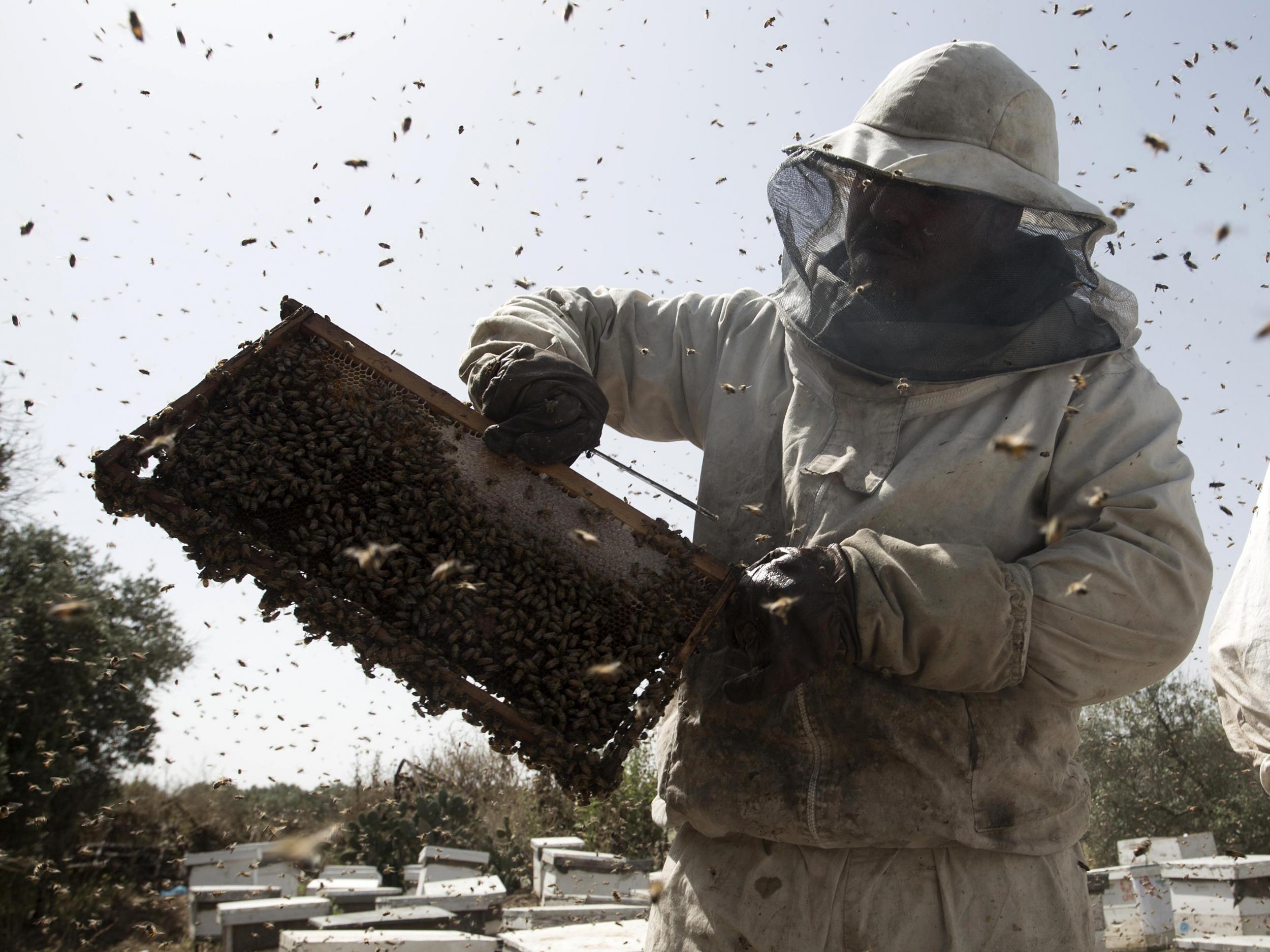Mushroom offers hope for bees as fungus extract kills viruses contributing to global collapse of colonies
'Time is running out for bee populations and the safety and security of the world's food supply hinges on our ability to find means to improve pollinator health'

Your support helps us to tell the story
From reproductive rights to climate change to Big Tech, The Independent is on the ground when the story is developing. Whether it's investigating the financials of Elon Musk's pro-Trump PAC or producing our latest documentary, 'The A Word', which shines a light on the American women fighting for reproductive rights, we know how important it is to parse out the facts from the messaging.
At such a critical moment in US history, we need reporters on the ground. Your donation allows us to keep sending journalists to speak to both sides of the story.
The Independent is trusted by Americans across the entire political spectrum. And unlike many other quality news outlets, we choose not to lock Americans out of our reporting and analysis with paywalls. We believe quality journalism should be available to everyone, paid for by those who can afford it.
Your support makes all the difference.Diseases contributing to the global decline of bees could be beaten using a medicine created from mushrooms, according to new research.
Scientists found the fungal remedy caused a massive reduction in two strains of a virus carried by infestations of varroa mites, which began to devastate the UK's bee populations and those further afield in the 1950s, after it was spread by closely related Asian honeybees.
Since then, the mites have killed millions of honeybees around the world and are responsible, along with harmful pesticides, for the “large-scale population extinctions” that have been observed in recent years.
Beekeepers continue to struggle with the mites, which do not themselves kill bees but pass on viruses that shorten their lifespans.
To address this problem, US scientists found that colonies fed extracts from amadou and reishi fungi showed a 79-fold reduction in deformed wing virus and a 45,000-fold reduction in Lake Sinai virus.
Deformed wing virus shrivels bees’ wings on bees, while Lake Sinai virus has been found at higher levels in bees from collapsing colonies and is thought to weaken the insects.
"Our greatest hope is that these extracts have such an impact on viruses that they may help varroa mites become an annoyance for bees, rather than causing huge devastation,” said Professor Steve Sheppard of Washington State University, who led the study, which was published in the journal Scientific Reports.
"We're excited to see where this research leads us. Time is running out for bee populations and the safety and security of the world's food supply hinges on our ability to find means to improve pollinator health."
Professor Sheppard added that mites not only spread the disease but also apply additional stress to their immune systems and make them more susceptible to disease.
He said the scientists are unsure whether the extract is boosting the bees' immune system or actively fighting the viruses.
"We're working to figure that out, along with testing larger groups of colonies to develop best management practices and determine how much extract should be used and when to have the best impact,” he said.
The findings came from a partnership with Washington-based business Fungi Perfecti, which has also investigated the antiviral properties of fungal extracts in human cells.
Founder Paul Stamets heard about the viruses harming bees and made contact with the researchers to investigate the effect of their products on colonies.
"After two years, we demonstrated that those anti-viral properties extend to honey bees,” said Professor Sheppard.
The treated bee colonies in this experiment were fed an oral treatment of extracts in dozens of small bee colonies infested with varroa mites.
Though the treatment is easy to apply it is not yet available in levels for beekeepers to purchase for their hives.
"After we follow larger colonies for a full year, we can develop recommendations for how to use the extracts,” said Professor Sheppard.
Mr Stamets added: "We are ramping up production of the extracts as rapidly as is feasible, given the hurdles we must overcome to deploy this on a wide scale."
Over the last decade, beekeepers have seen a disastrous decline in the health of honey bee colonies, often averaging over 30 per cent loss annually.
Besides viruses, many nations are turned their attention to the pesticides being applied to crops, many of which have turned out to be harmful to bees and other pollinators.
In April the European Union voted for a near-total ban on three major neonicotinoid chemicals, and other pesticides pegged as replacements such as sulfoxamine have also raised alarm bells after scientists identified disruptive effects on bee colonies.
Additional reporting by SWNS.
Join our commenting forum
Join thought-provoking conversations, follow other Independent readers and see their replies
Comments